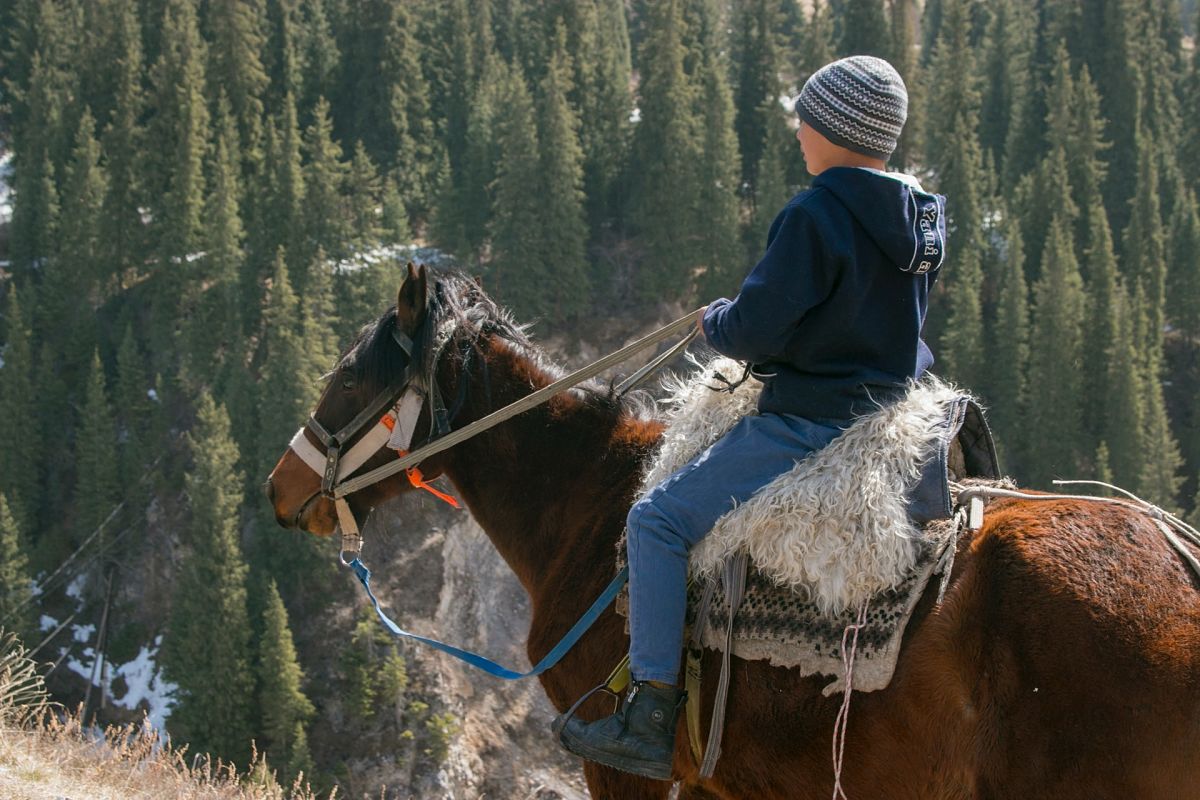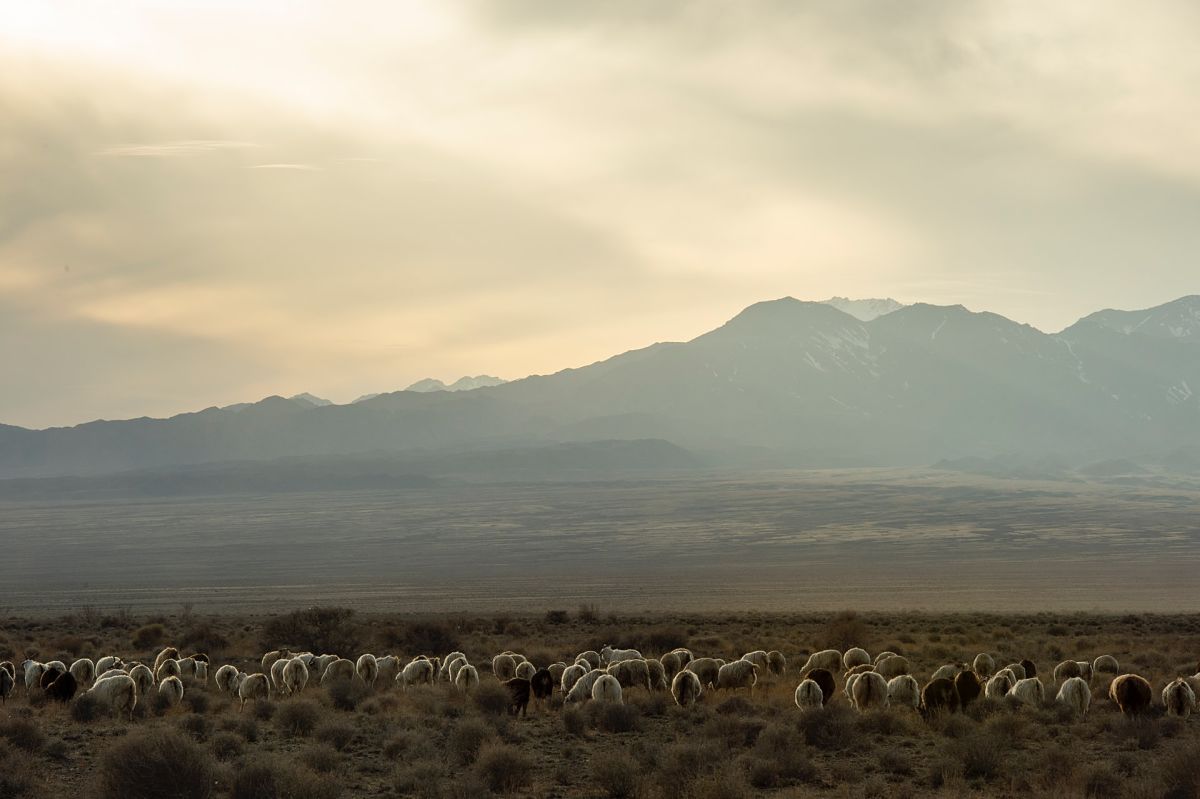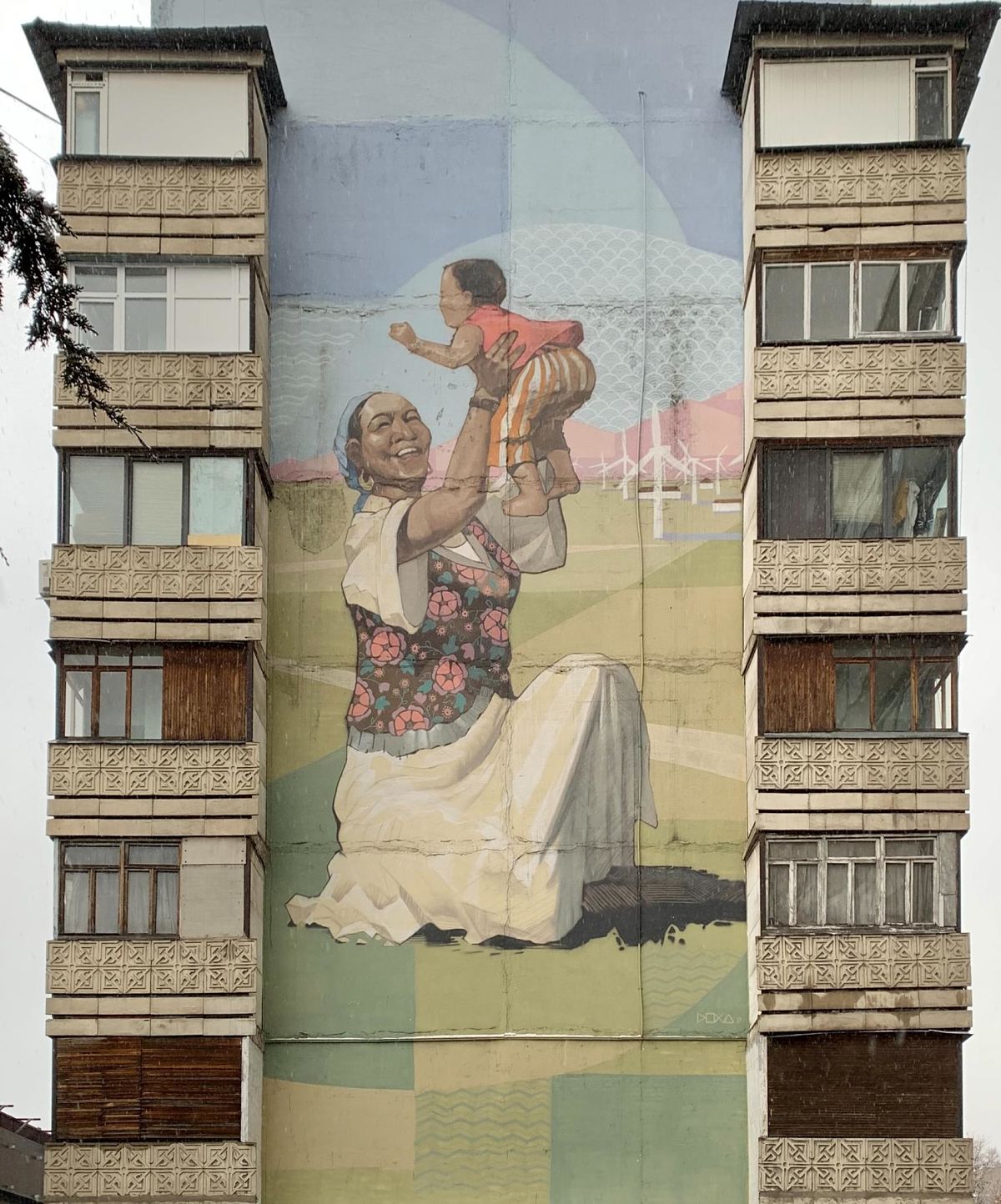Kazakhstan - Culture, Etiquette and Business Practices
What will you learn in this guide?
You will gain an understanding of a number of key areas including:
- Language
- Religion and beliefs
- Culture and society
- Social etiquette and customs
- Business culture and etiquette

You can't understand Kazakhs without understanding their connection to horses. Photo taken in Kolsai Lake by Rosie Blamey on Unsplash
Facts and Statistics
Location: Central Asia, northwest of China; a small portion west of the Ural River in eastern-most Europe
Capital: Nur Sultan. The name of the capital city was change in 2019 from Astana to honour the long-ruling Kazakh President Nursultan Nazarbayev
Climate: continental, cold winters and hot summers, arid and semiarid
Population: 18+ million (2019 est.)
Ethnic Make-up: Kazakh (Qazaq) 53.4%, Russian 30%, Ukrainian 3.7%, Uzbek 2.5%, German 2.4%, Tatar 1.7%, Uygur 1.4%, other 4.9%
Religions: Muslim 47%, Russian Orthodox 44%, Protestant 2%, other 7%
Government: republic; authoritarian presidential rule
Language in Kazakhstan
- Kazakhstan is a bilingual country: the Kazakh language, spoken by 64.4% of the population, has the status of the "state" language, while Russian, which is spoken by almost all
- Kazakhstanis, is declared the "official" language, and is used routinely in business.
- Kazakh (also Qazaq) is a Turkic language closely related to Nogai and Karakalpak.

A herd of sheep at sunset in Altyn Emel National Park. Photo by Charlotte Venema on Unsplash
Kazakh People, Culture and Society
A minority in their own land
Kazakhstan is unique in that its people, the Kazakhs, did not form the majority of the population upon independence in 1991. Currently the northern part of the country is populated mostly with Ukrainian and Russian majorities while Kazakhs are more prevalent in the south. Other prevalent nationalities include Germans, Uzbeks, and Tatars, and over one hundred different nationalities reside in the country.
It is the goal of the government for the Kazakhs to become the majority of the population throughout the country. This can be seen in many overt and covert actions and policies. Many street names have reverted to their historical names. Kazakh has been declared the national language of the country (even though many native Kazakhs cannot speak their own language). Expatriated Kazakhs have been invited to return home and settle. Couples are encouraged to have large families.
It is important to note that the people of Kazakhstan, inclusive of all ethnic groups living in the country, are called Kazakhstani. Only people of the Kazahk ethnic group are called Kazahks.
If you are not sure of someone’s ethnic background, it is safest to refer to them as Kazakhstanis.
Kazakhs
The word "Kazakh" means "a free and independent nomad" in ancient Turkish. Kazakhs have travelled along the steppes of Kazakhstan from western China to the southern border of Russia for centuries.
For centuries Kazakhstan was a country of nomads and herders. Tribes were the basis of society; the tribe was constituted of family members and the family elders. Inter-tribal marriages were important in establishing security and peace. To this day, Kazakhs say, "the matchmaking lasts a thousand years, while the son-in-law lasts only a hundred." Arranged marriages are still the norm in many parts of the country.
A Patriarchal and Hierarchical Society
The Kazakhs developed a patriarchal view of the world. They banded together in extended family groups to battle the hardships of the environment and to protect their cattle and their families. This was officially called "ata-balasy", which means the joining of a grandfather’s sons into one tribe of extended family. The husband plays the primary role in family life and is ultimately responsible for the family’s survival.
Kazakhstan is also an extremely hierarchical society. Everyone has a distinct place in the hierarchy based upon family relationships. People are respected because of their age and position. Older people are viewed as wise and therefore they are granted respect. The "ways of the elders" is a popular expression that is used to explain why things are done in prescribed ways. Kazakhs expect either the eldest or the person with the highest position to make decisions that are in the best interest of the group.

Art on the side of an apartment block on Tulebaev Steet, Almaty. Photo by Nurgissa Ussen on Unsplash
Kazakh Manners and Etiquette
Meeting People
- Greetings are rather formal due to the hierarchical nature of society.
- The common greeting is the handshake, often done with both hands and a smile. Since many Kazakhs are Muslim, some men will not shake hands with women, so be sensitive to these religious differences.
- Once you have developed a personal relationship, close friends of the same sex may prefer to hug rather than shake hands.
- Most Kazakhs have a first and patronymic name (the father’s name followed by a suffix -ich or –ovich for son of or daughter of, respectively).
- Wait until invited before using someone’s first name, although the invitation generally comes early in the relationship.
Gift Giving Etiquette
- There is not a great deal of protocol in gift giving.
- When invited to someone’s house for dinner, it is polite to bring something for the hostess such as pastries.
- Practising Muslims do not touch alcohol, so do not give alcoholic beverages unless you know your host drinks.
- Gifts are usually opened when received.
Dining Etiquette
- Kazakhs are very hospitable people and enjoy hosting dinners at their homes.
- You will be served tea and bread, even if you are not invited to a meal. Since Kazakhs consider bread to be sacred, serving bread is a sign of respect.
- When served tea, your cup will often only be filled halfway. To fill the cup would mean that your host wanted you to leave.
- It is not imperative that you arrive on time, although you should not arrive more than 30 minutes late without telephoning first.
- Dress conservatively in clothing you might wear to the office. Kazakhs value dressing well over comfort. To dress too informally might insult your hosts.
- Table manners are not terribly formal in Kazakhstan.
- Table manners are Continental -- the fork is held in the left hand and the knife in the right while eating.
- Some foods are meant to be eaten by hand.
- Your host or another guest may serve you.
- In more rural settings, you may sit on the floor.
- You will be given a bowl to drink broth or tea. When you do not want any more, turn your bowl upside-down as an indication.
- If alcoholic beverages are served, expect a fair amount of toasting.
- Meals are social events. As such, they may take a great deal of time.
- Leave something on your plate when you have finished eating. This demonstrates that you have had enough, whereas if you finish everything it means you are still hungry and you will be served more food.
- Expect to be served second helpings.
A Sheep’s Head
- In rural settings it is a sign of respect to offer the most honoured guest a boiled sheep's head on a beautiful plate.
- The guest then divides the food among the guests in the following fashion:
- The ear is given to the smallest child so that he or she will listen to and obey the elders.
- The eyes are given to the two closest friends so that they will take care of the guest.
- The upper palate is given to the daughter-in-law and the tongue to the host’s daughter so both women will hold their tongues.
- The pelvic bones go to the second most respected guest.
- The brisket is given to the son-in-law.
A typical Kazakh spread. Photo by Steven M. Otters (CC BY-NC 2.0)
Business Culture and Etiquette
If you're looking for expert help and advice on doing business in Kazakhstan, then this is what we do!
Click here to learn more about our customized cultural training.
Meeting and Greeting
- The handshake is the common greeting. Two hands are often used.
- Handshakes tend to be gentle.
- Many Kazakh men will not shake hands with women. A woman should extend her hand, but if it is not accepted, she should not be insulted.
- Maintain eye contact during the greeting.
- Shake hands at the end of a meeting, prior to leaving.
- If you meet someone several times in the same day, you should shake hands each time.
- Wait to be introduced to everyone, usually in order of importance.
- Academic and professional titles are used in business.
- People are called by their title and surname.
- Wait until invited before using someone’s first name.
- Business cards are extremely important to establish one’s position, navigate bureaucracy and open doors.
- Likewise, show the card of someone significant when trying to gain access or secure an appointment.
- Business cards are exchanged without a great deal of ritual.
- It is advisable to have your business cards printed in Russian on one side and English on the other.
- Make certain that your title is included on your business card.
Communication Styles
Protecting relationships and people’s honour is important. As a result Kazakhs finesse what they say in order to deliver information in a sensitive and diplomatic manner. They tend to speak in a roundabout fashion rather than a linear fashion. They respond more favourably to gentle probing rather than direct questioning.
At the same time, many Kazakhs have a somewhat volatile demeanour and can raise their voice to get their point across. They are known for their fierce arguments. You may wish to retaliate in kind, but do so cautiously as there is a fine line between standing up for yourself and appearing overly aggressive.
Hierarchy is respected in Kazakhstan. Someone more senior is never ever contradicted or criticised, especially in public. You will be expected to treat senior Kazakhs in the same manner.
Business Meetings
Meeting styles vary by the type of business entity. Private industry is often more focused and westernized; things are a little bit more fluid. Public entities, on the other hand, follow lots of protocol and red-tape (leftovers from the Communist era). The latter may involve many more meetings and patience.
The hierarchical nature of the culture means that Kazakhs will want to meet people of similar rank. Therefore, it is important to forward the bios of all team members well in advance of any meeting.
T-shaped tables are often used for meetings so that both sides can be seated opposite each other. The top Kazakh at the meeting will sit at the head and his staff will be seated in decreasing order of rank. Your team should attempt to seat themselves in the same manner. In some companies, there is an emerging trend to seat peers next to each other to facilitate conversation.
There is generally a fair amount of small talk before business is discussed. This may take place over tea and sweets. Wait for the other party to bring the conversation to business
Spend time in relationship building; as a family orientated people they want to be sure you are trustworthy, affable and reliable.
The most senior Kazakh at the meeting opens the discussion and introduces his team in rank order. Although meetings have a start time, they seldom have an ending time. They are masters at delivering roundabout speeches. Therefore, it would be impractical to predetermine when a meeting will finish.
Management Style
- Read our guide to Kazakh Management Culture for more specific information on this topc.
THANKS FOR READING OUR GUIDE TO KAZAKHSTAN - SHARE IT IF YOU LIKED IT!
Do you need to cite this page for school or university research?
Please see below examples.
Simply change the country name depending on which guide you are referencing.
MLA Format:
Commisceo Global Consulting Ltd. Afghanistan - Language, Culture, Customs and Etiquette. www.commisceo-global.com. 1 Jan. 2020 https://commisceo-global.com/resources/country-guides/afghanistan-guide
APA Format:
Commisceo Global Consulting Ltd. (2020, January 1) Afghanistan - Language, Culture, Customs and Etiquette. Retrieved from https://commisceo-global.com/resources/country-guides/afghanistan-guide
Harvard Format:
Commisceo Global Consulting Ltd. (2020). Afghanistan - Language, Culture, Customs and Etiquette. [online] Available at: https://commisceo-global.com/resources/country-guides/afghanistan-guide [Accessed ENTER DATE].

 +44 0330 027 0207 or +1 (818) 532-6908
+44 0330 027 0207 or +1 (818) 532-6908


